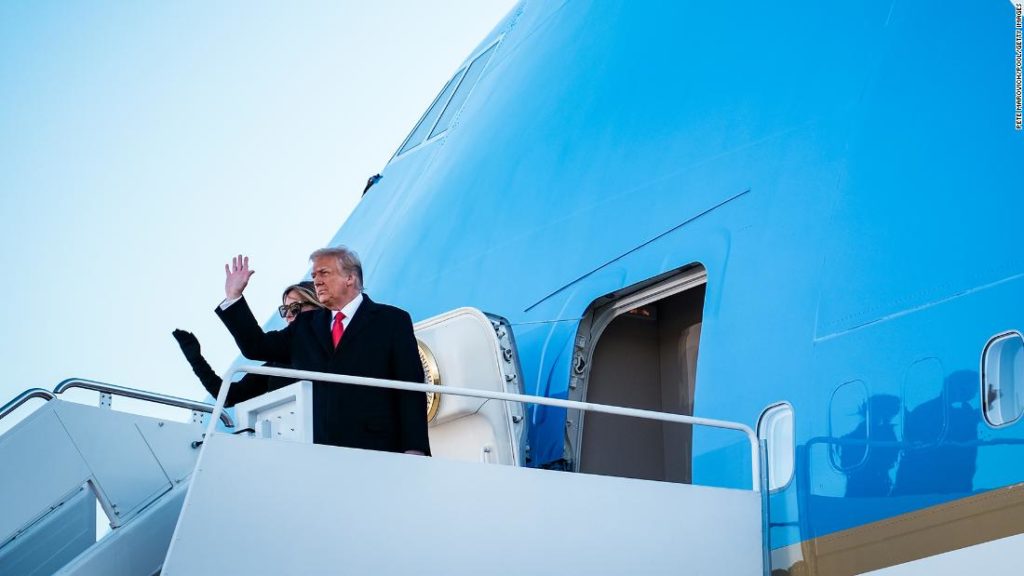So, if the Senate convicts him, it would likely need a second vote to make Trump ineligible for his pension and benefits, according to Michael Gerhardt, law professor at the University of North Carolina. That second vote would remove him from the office of former president, resulting in his losing the benefits of that office, according to Gerhardt. But other experts question whether even a second vote would be able to strip him of the pension and perks.
“That seems pretty questionable,” said Demian Brady, director of research for the National Taxpayers Union Foundation, a government spending watchdog.
Other benefits
Brady said one of the most expensive perks for ex-presidents is office space rent, which has no limits. Former Presidents Bill Clinton, George W. Bush and Barack Obama each had more than $500,000 in office rent covered last year, Brady said. Jimmy Carter’s rent was only a fraction of that – $118,000. But that was still substantial.
One perk that Trump will not get that other former presidents receive is health insurance — a president needs to be in federal office for at least five years to get that perk, so neither Trump nor Carter qualify for that.
Trump’s wealth
Perhaps the pension doesn’t matter that much — Trump appears to have done fine without his presidential salary during his time in office.
The law spelling out presidential pensions was passed in 1958, when Harry Truman, then one of two living ex-presidents, was experiencing financial problems. But there have been calls to end or reduce the pension and perks for ex-presidents, especially because most presidents today have significant earning potential from books and lectures.
“This law was originally enacted for a hard luck case. In the modern era these ex-presidents have such substantial earning potential that it has become subsidizing millionaires,” said NTUF’s Brady.
Brady argues even if the benefits come to only $4 million a year, a miniscule part of a federal budget that is in the trillions, it is money that can be saved.
“Any opportunity where we can reduce unnecessary spending, we should take it,” he said.
But that $400,000 could quickly have disappear under the legislation, which cuts the pension and expense payments by a dollar for every dollar that a former president earns above $400,000. So taxpayers are off the hook entirely once a president earns $800,000 a year.
Obama vetoed the legislation, telling Congress that he did so because the bill also would have terminated the salaries and benefits of former presidents’ staff, and made it harder for the Secret Service to protect former presidents.
“If the Congress returns the bill having appropriately addressed these concerns, I will sign it,” he said.
The legislation never got back to Obama’s desk. And while the House passed similar legislation in 2019 after the Democrats took control of the chamber, the Senate never voted on it.
You may also like
-
Afghanistan: Civilian casualties hit record high amid US withdrawal, UN says
-
How Taiwan is trying to defend against a cyber ‘World War III’
-
Pandemic travel news this week: Quarantine escapes and airplane disguises
-
Why would anyone trust Brexit Britain again?
-
Black fungus: A second crisis is killing survivors of India’s worst Covid wave

